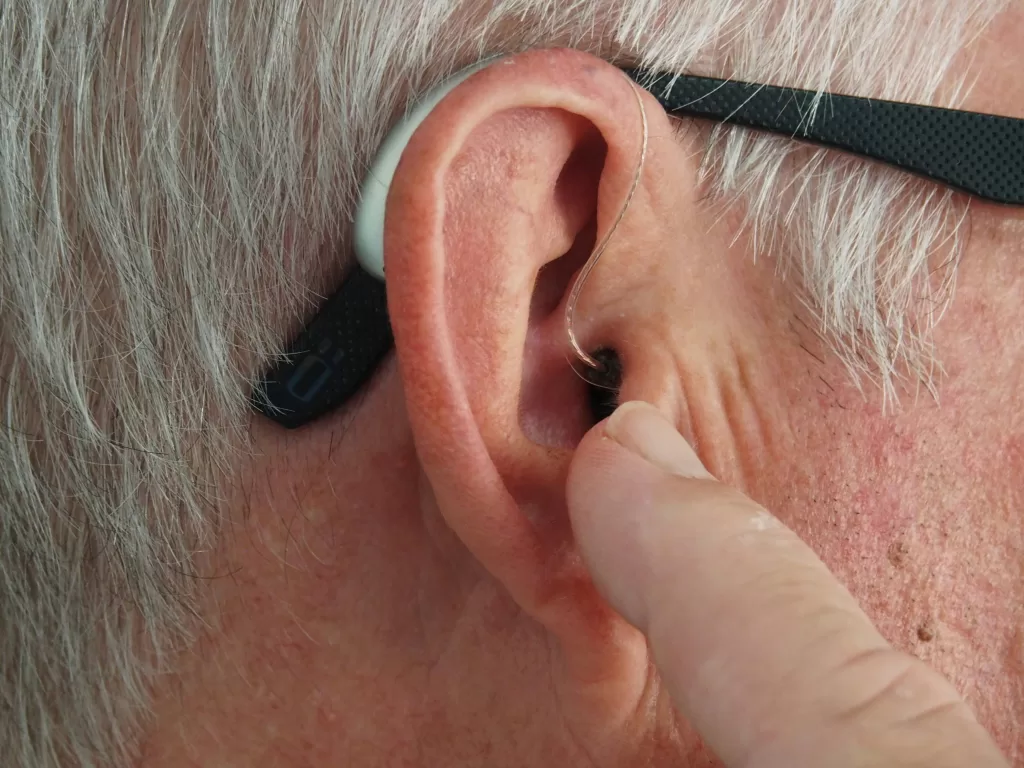
Sleep and hearing are intrinsically linked, with a lack of sleep impacting the ability to hear and certain disorders can interrupt sleep.
Studies on insomnia have shown blood circulation problems resulting in inner ear damage and hearing loss that can either manifest gradually or immediately. Those with sleep apnea also have an increased risk of inadequate blood flow to the ears, potentially even getting sensorineural hearing loss from loud snoring.
For the 60.7 million Americans already dealing with hearing loss, it’s not uncommon to need hearing aids. One in six Americans aged 20 to 69 wear some form of hearing aid, and more than a fourth of those aged 70 also use them. The question is whether or not you can wear them to bed and what the effects of doing so might be.
Should you wear hearing aids to bed?
It’s generally best not to wear your hearing aids to bed. You might think it’s best to have them on even while sleeping, but this doesn’t have many benefits. Your ears need time to rest and breathe, especially if it’s been a particularly hot day. During the night, you want to let your ears receive more air circulation before you put your hearing aids back on in the morning. This helps you avoid building up too much moisture and potentially getting a bacterial infection.
In addition, you may experience some pain or discomfort when you sleep with your hearing aids on. When you sleep on your side, you put pressure on your ears, which can make wearing your hearing aids all night more detrimental to your sleep quality.
However, it’s important to note that it isn’t necessarily bad in itself to fall asleep with your hearing aids on. If you do this accidentally, there shouldn’t be any negative impact on your hearing. The practice of taking them out before bed is to save on battery and a precaution for your long-term comfort and ear health.
Alternatives to hearing aids in bed
If you’re unsure what the best course of action is instead of wearing your hearing aids while sleeping, there are a few alternatives. The most common thing to do is use this time to charge them up. As long as you set some reminders for yourself, it will be easier to remove them before you get into bed.
Another alternative is to change the type of hearing aids themselves. If you use hearing glasses, you get much of the same functionality but are less likely to forget about removing them at night. Even if you fall asleep with a pair on, taking them off is easier without risking ear pain. Because of beamforming technology, this hearing aid can cut out background noise and provide clear audio with volume control. Since Nuance Audio models also come with prescription lenses, you have fewer gadgets to consider as you have both your vision correction and hearing aid in one. You can also charge with a wireless pad built to hold glasses.
How to get a good night’s sleep with hearing loss
A recent study found poor sleep quality directly associated with an increased risk of hearing loss. More than the duration, it was about the deepness and comfort of the actual sleep that mattered. If you are already dealing with hearing loss, you’ll want to make changes to improve your sleep so as not to exacerbate existing problems.
The simplest thing to do is to minimize your screen time to let your circadian rhythm do its thing. Screens emit blue light that hamper your body’s ability to enter a sleep state, so avoid them at least one hour before bedtime. Additionally, you will want to dampen any excess light in your room to create a dark environment conducive to rest.
Finally, you may want to add some short meditation to your routine. Calm is a free app for guided 10-minute sessions and courses. Much of the sleep trouble from hearing loss is associated with stress, so having an activity that tackles this unrest can be very helpful before bedtime.












